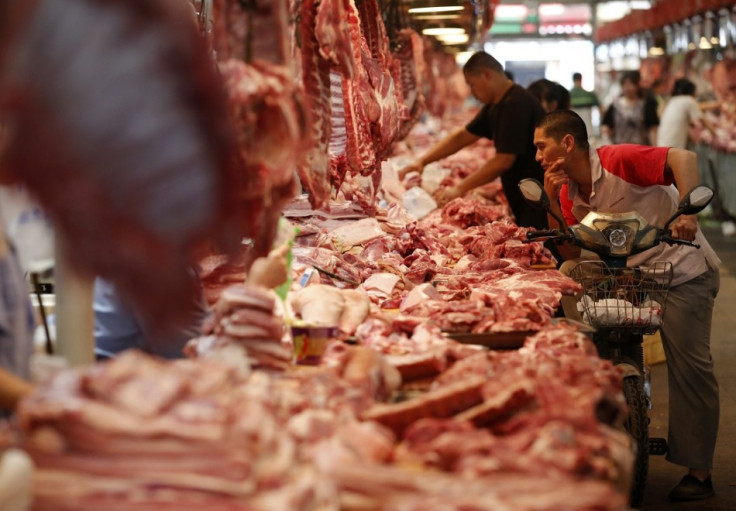Reducing meat consumption to 'healthy levels' can prevent 2C rise in temperature

Reducing meat consumption worldwide to moderate levels could be the trick to check global warming and keep it below the 2C threshold. A new research that included surveys in 12 nations has claimed that policy interventions including meat tax and subsidy reforms are not viewed as "unfavourable" by the public as governments believe.
According to the study by Chatham House and Glasgow University, a reduction in global meat consumption could close the emissions gap by almost a quarter. It noted that livestock sector alone accounts for 15% of global emissions, equivalent to exhaust emissions from all vehicles around the world. By 2050, global meat consumption is expected to rise by 75%.
With meat consumption in developing economies rising rapidly – China, Brazil and India being among the world's largest and fastest growing countries – and if Western diet becomes the norm, a global rise in temperatures by 4C cannot be averted. The Western diet is "a four-degree diet". The rest of the world cannot afford to converge around such levels of excess, the study claimed.
Not only will reduced meat consumption check warming, it will indirectly benefit the health of consumers as well. In industrialised countries, the average person is already eating twice as much meat as is deemed healthy by experts. This is contributing to the rise of obesity and diseases like cancer and type-2 diabetes. The World Health Organization had recently shown that the consumption of processed meat causes colorectal cancer, while eating red meat is "probably carcinogenic to humans."
"Governments overestimate the risk of public backlash and their inaction signals to publics that the issue is unimportant or undeserving of concern," said lead author Laura Wellesley, at Chatham House, pointing out that they found a general belief across cultures and continents that it is the role of the government to spearhead efforts to address "unsustainable consumption" of meat.
Stressing that this is not a call to convert to vegetarianism, but to converge around healthy levels of meat eating, Wellesley said that cutting subsidies for meat production was seen as both effective and popular. Livestock subsidies in the 34 Organisation for Economic Co-operation and Development nations alone were $53bn (£35bn) in 2013, including an average of $190 per cow.
Soft measures to change behaviour and interventionist policies will be needed to counter the influence of individual preference and habit, cultural customs and industry tactics to sell more meat, she said.
The authors recommend public awareness and effective government leadership to tackle unsustainable meat consumption, which is a necessity and key opportunity for win-win policy-making. Awareness will have to be created through information disseminated by trusted sources like the government, who should come out with policy interventions as well, they team found during the public survey.
On 30 November, most nations would meet in Paris to explore ways to limit climate change by forging a deal post-2020 to replace the Kyoto Protocol. The national plans submitted so far have raised a bleak picture on chances to avert a 2C rise in temperature. Disagreements between the rich and poor nations on funding and apportioning responsibilities threaten any substantial gains at Paris.
© Copyright IBTimes 2025. All rights reserved.





















